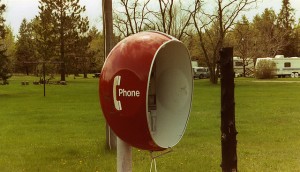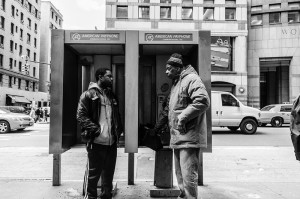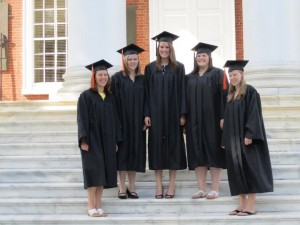
Tonight’s baccalaureate sermon for the Wesley Foundation at UVA, on Mark 14: 3-9.
I’m going to tell you the opposite of pretty much everything everyone else is going to tell you this weekend.
You have probably already heard and will hear again tomorrow that you are the best and the brightest, that it’s your job to go out there and make the world a better place, that you are the leaders now and it’s time to take the helm. You will be told that the sky is the limit and your dreams should be big. You will be told to make something of yourself – especially through your professional accomplishments. You will be told to enjoy the places your lives will take you – especially when they are far away, glamorous, unexpected, and can earn you more money. You will be told, as you have been so many times already, that the impressiveness of your résumé is how you are measured and valued.
I’m not going to tell you those things. Because you are UVA people and because I know that you will do big, amazing, impressive, world-bettering things no matter what we say to you. It’s part of why you are here to begin with. You are high-achieving, motivated, conscientious. You don’t need encouragement to be who you already are.
But you probably need a lot of encouragement to consider living small.
I don’t mean miserly, shut-in, cut-off, or inhospitable. I don’t mean afraid and cowering. Just small. Humble. In proportion. Manageable. Close to the ground and centered around the people, places, and things you really mean to have at the center of your life.
Like Ruthie Leming. She was the younger sister of writer Rod Dreher and they grew up together in rural Louisiana. From early childhood, Ruthie’s world was that town. She married her high school sweetheart, taught school, and raised kids there. Rod, on the other hand, couldn’t wait to leave town for some place bigger, faster, more “cultural.” He felt trapped in that small town and he never understood why his sister seemed so happy there. Even content.
In his book about their lives, he writes: “I had somehow come to think of her living in a small town as equivalent to her living a small life. That was fine by me, if it made her content, but there was about it the air of settling. Or so I thought” (The Little Way of Ruthie Leming: A Southern Girl, a Small Town, and the Secret of a Good Life, by Rod Dreher, p. 194).
Then, in her early 40s she developed cancer and died within a couple of years. In the course of her illness and during the weeks after her death, Rod developed a different relationship to the town. By that point he and his family had moved around between Washington DC, New York City, and Philadelphia. He was a widely-published writer, made a lot more money than his sister, and he lived in impressive, happening places. But he realized during his trips home that he didn’t have any friends or neighbors in any of those places who would come take care of him if he got sick. He witnessed the town coming together to support Ruthie, raising tens of thousands of dollars for her care, providing meals, watching out for her kids, and traveling back from places like California to be at her funeral. He heard the stories of her former students, now teachers themselves, who said they would never have even finished high school if Ruthie hadn’t taken an interest in them. And though the time was full of struggle and pain, his trips back home opened his eyes to what was missing in his own life and to what had been there all along in that small town and those small-seeming lives. His epiphany was that Ruthie’s small life was bigger and deeper than he had ever grasped – bigger in some very important ways than his own well-crafted life.
Why am I telling you all this? Your families here tonight will be pleased to hear that I am not trying to get you all to move back home and never leave. But I encourage you to read the book (The Little Way of Ruthie Leming) and to think about what living a small life might mean for you. As Rod makes sense of his sister’s death and their very different lives, he comes to terms with the fact that if he had never left he would have been bitter and always wondering. He doesn’t come to the conclusion that his sister was right all along. He had to take the journey he did in order to find his way back home – literally to Louisiana and his family but also to the kind of life God was calling him to live.
It’s not an either/or proposition, but graduation clichés and platitudes can make it sound that way. Either you go “make it big” or you settle for something that pays the bills. Either you make your mark on the world or you start a family. Either you “use” your degree or you don’t. Either you impress other people or you satisfy yourself.
But it’s not an either/or choice between a big life or a smaller one that counts. Some of your biggest most God-centered moments will not be televised or public or result in a bigger paycheck. Some of the smallest-seeming moments will reverberate the loudest in terms of how you organize your life and live it out in the ordinary details of every day.
Jesus’ disciples protested and complained because they thought there was an either/or choice between big acts of justice – feeding the poor – and small acts of kindness – anointing one man’s feet. Jesus doesn’t recognize this choice. He says, You can (and should) help the poor regularly. You have that opportunity every day. But this opportunity is the one in front of you right now and it’s good, too. She cared for me (vv.3-7). He says, “She has done what she could” (v. 8).
We don’t even know her name. It was an extravagant act but small, intimate, and fleeting. Only a few disciples knew about it and even though we are still talking about it tonight, we don’t know her name. If she were graduating tomorrow, people would advise her to etch her name into the jar of alabaster before she breaks it so everyone present will remember it better. If she were graduating tomorrow, people would tell her to get more bang for her buck and organize an Alabaster Day on the Lawn or on the National Mall and have hundreds of people breaking jars and anointing feet all over the place in a synchronized and well-publicized movement.
She did one generous, personally-extravagant, but relatively small thing. That is what Jesus noticed and praised her for and I suspect that at the end of her life, that moment was one of the highlights. I suspect that throughout her life that moment was a touchstone that helped her make other generous, personally-extravagant, Christ-centered decisions. It was small and, despite Jesus’ words, almost forgotten. What was her name again? But I am telling you, it was enough.
You are already on an amazing trajectory to do big, impressive, résumé-building things that I look forward to reading and hearing about. You are also already enough.
What I want is for you to be on the lookout for the brilliantly small life, wherever you go next. Be ready to get generous, personally-extravagant, and Christ-centered – even if hardly anyone else sees it and you can’t put it on your résumé. Like you have been living here. I know you have had mind-blowing classes, trips around the world, challenging internships, and incredible professors here. I also know that some of your most important, memorable, reverberating moments have been the small ones. Talking in my office or over coffee, offering comfort to a struggling first year, on spring break mission trips, in worship, trying to work out your beliefs in a hot topic forum, around the countless dinner tables, in late night car rides back to your dorm or on couches in the Cottage, in marathons or minutes spent in Study Camp… You have done what you could. You already know what the big, good, small moments can be. Keep it up.
Thanks be to God!
*
photo credit: © 2011 Melissa Holmes, Used with permission.


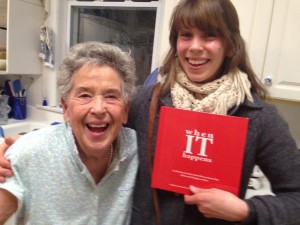



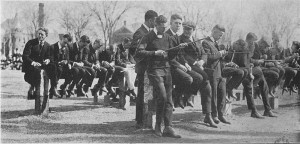



 Gearing up for the fall semester provides an annual opportunity for me to check in with God as I survey the path ahead. Even if you are one of those lucky dogs soaking up sun on a beach right now, you can still invite God in and reflect on these questions together. Where are you headed this year?
Gearing up for the fall semester provides an annual opportunity for me to check in with God as I survey the path ahead. Even if you are one of those lucky dogs soaking up sun on a beach right now, you can still invite God in and reflect on these questions together. Where are you headed this year?
